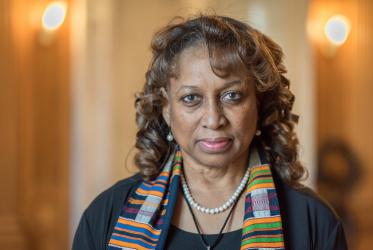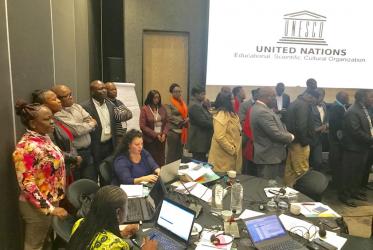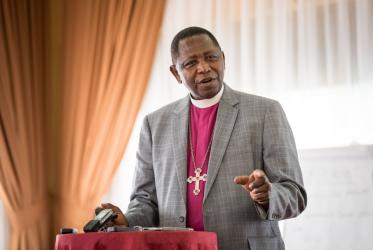Displaying 1 - 20 of 32
WCC mourns passing of Hendrew Lusey-Gekawaku
23 October 2020
Knowledge of gender roles deepens in Togo
03 June 2019
Faith and HIV treatment go hand in hand
06 March 2019
WCC hones training on attitudes toward HIV treatment
06 December 2018
Doing his best without being the best
07 September 2018
Walking together against hatred and violence
26 February 2018
“Facing the storm of HIV, we can move together, be agents of change”
06 September 2017

















